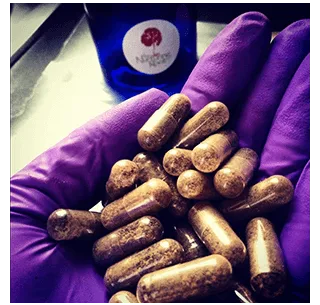With the current COVID-19 pandemic, the number of home births has been on the rise. Understandably so, many people now have hesitations about birthing in a hospital. Whether that be fear of being exposed to the coronavirus while there, being uncomfortable about the new protocols that have been put in place in many hospitals (ie wearing a mask while laboring, separation from baby after birth, etc), or some combination of the two, those who may not have previously considered home birth are now finding it a very real option. Having had 5 home births myself, I’m here to let you know some things that may help you make your decision.
The Mess
It’s not nearly as messy as you might think. Seriously, I promise. Midwives are great about protecting your home environment from mess. Yes, there will be some fluid and yes, there may be some blood, but that does not, I repeat, does not wind up all over your birthing area, splashed on walls, covering the floor, looking like some horror movie as some may imagine (and even if it did, your midwife is still amazing enough to clean that up too). While laboring, your midwife will strategically place chux pads (absorbent disposable pads) in your birthing area; these are easily picked up, thrown away when they get soiled, and replaced. Your bedding, if you choose to labor on your bed, will be stripped, stain-treated if necessary, and swept away to be washed before your midwives leave. You’ll be able to lie down and recover in a bed with fresh linens ready for your baby-snuggle sessions.
Freely Eat and Drink
One of the most wonderful things about birthing in your own home, out of the hospital setting, is that you are no longer subject to hospital policy. So, that ban on eating during labor that you may expect? It doesn’t exist in a home birth setting. In fact, midwives generally encourage you to eat and drink freely throughout your labor so as to keep your energy up and to assure you remain hydrated for optimal labor and delivery. And what’s even better than being encouraged to eat and drink during labor, you ask? Being able to eat and drink your favorite foods and beverages during labor. After all, it’s your house, it’s your kitchen; you have access to the foods that will sit best with your body and that you enjoy. This is also a huge advantage for your first post-birth meal!
What if Something goes Wrong?
This is usually one of the major concerns for people who have never previously considered home birth. Considering the unpredictable nature of birth, it is a legitimate concern. That being said, midwives are trained to respond accordingly when the unexpected occurs. They are present during your labor to monitor you and your baby and if at any point they believe that something is amiss, they will make certain you get necessary care. Midwives are in the business of safe outcomes even if it means they need to recommend transitioning your care over to a local hospital when an identified-issue is outside her area of expertise. In a scenario that involves immediate attention, midwives are trained in and equipped to provide resuscitation to both mother and baby and they also have necessary medication to stop excessive bleeding. Midwives are trained health professionals and they take the health of their clients very seriously.
No Interruptions
Birthing at home means your labor won’t be interrupted by shift-change, you won’t have to endure hearing medical codes being called out over the loud-speaker during labor or through the night. You won’t have to labor in one room on the labor/delivery floor only to have to wait to settle into another room after baby is born. You won’t be awakened near-constantly to have yours and baby’s vitals taken after you’ve given birth. The list of hospital-birth annoyances could go on. In comparison, at home, you get to relax into your own bed, surrounded by all your everyday comforts. Yes, your midwife will stick around for a couple of hours after you’ve delivered, to make sure you and your baby are feeling well and nursing well, and you’ll be made aware of any warning signs to look for in case of problems but you won’t have frequent knocks on your bedroom door for two days after having a baby when all you want to do is rest and snuggle. Your midwife will also come back to visit you and your little one soon after you give birth to make sure you’re both continuing to do well.
True Freedom of Movement
Home birth gives you freedom to move about your environment as you see fit. You can pace your bedroom, walk your stairs, lie on your comfiest couch, or even stroll your neighborhood! You’re not confined to a single room or even a single building while you labor. Your comfort is a priority to your birthing team and your comfort is more easily achieved in an intimately familiar environment like your very own home.
While home birth is not for everyone, if your pregnancy is low-risk, you’re a great candidate! These tidbits of information are just the tip of the iceberg but hopefully you’ve learned enough to determine if home birth will be a further consideration for you. Even if you’re later on in your pregnancy and feel like you may be too late in the game to change providers and start planning a home birth, I encourage you to reach out to some local midwives. Many are willing to take on clients very late in pregnancy barring any high-risk indicators. No matter where you birth, here’s wishing you a happy and healthy pregnancy, labor, and delivery!




